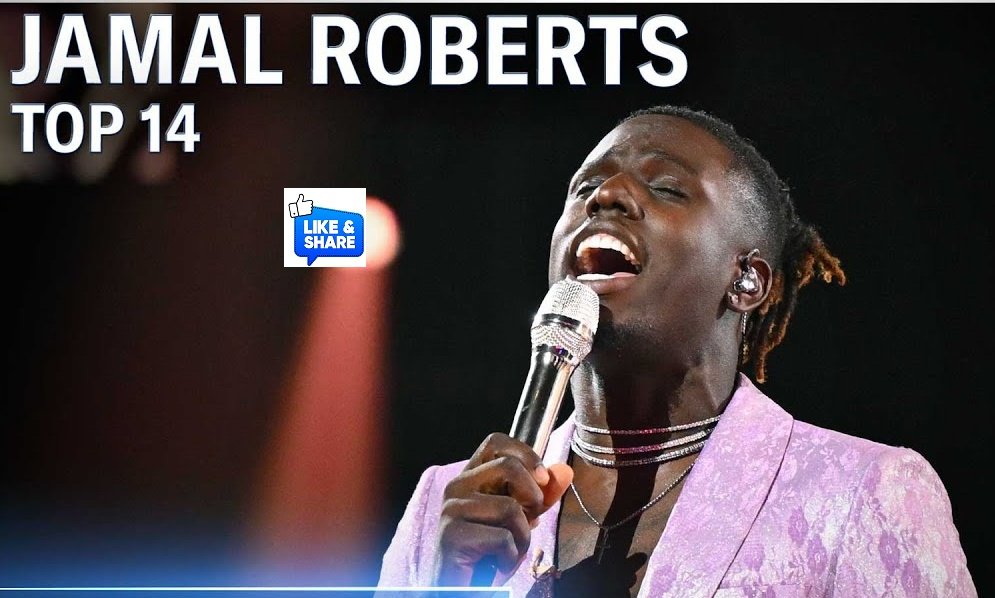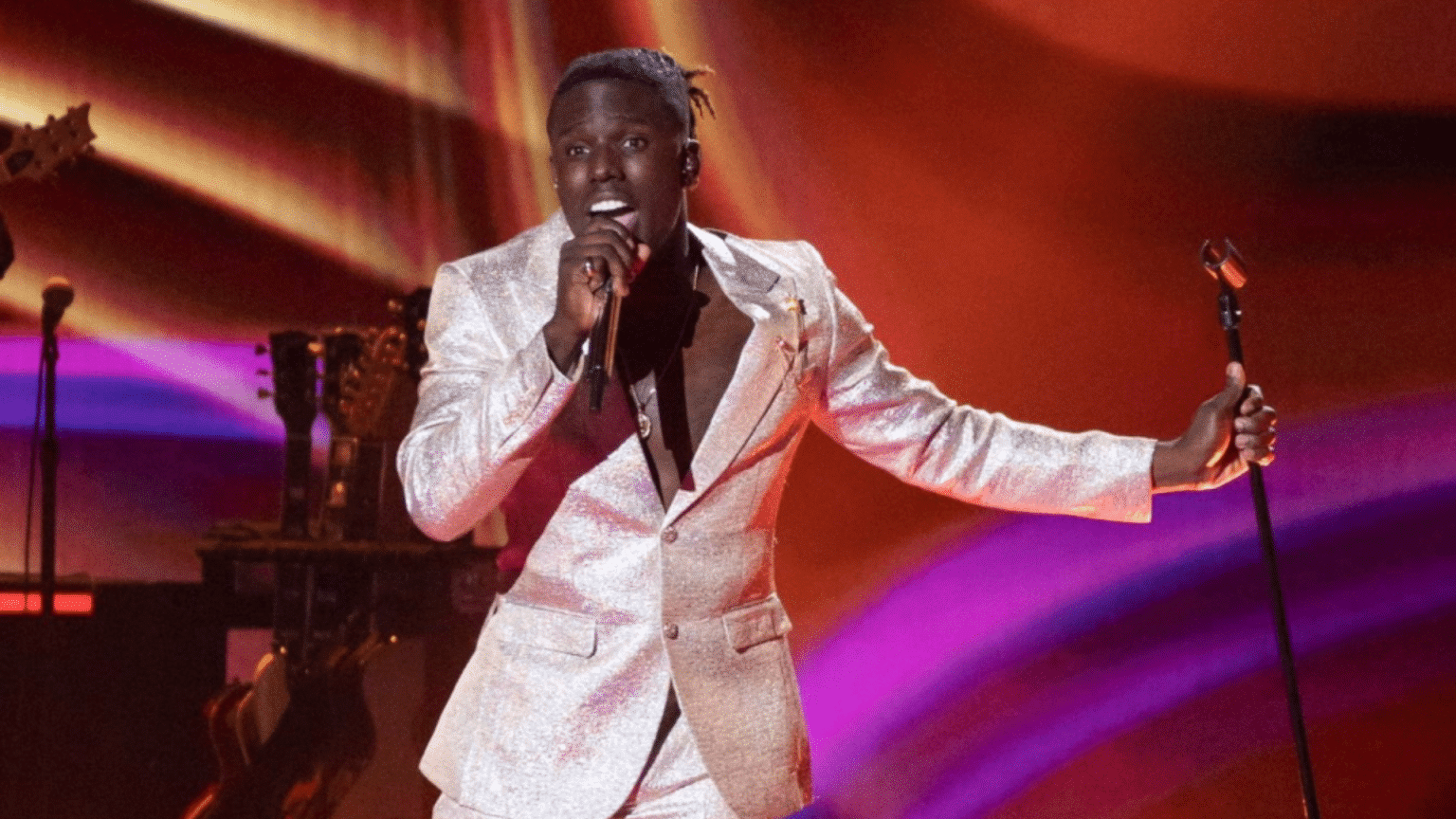
Jamal Roberts stepped onto the American Idol stage during one of the most emotionally charged moments of Season 23, but it wasn’t a flashy performance or vocal gymnastics that would come to define this night. It was his vulnerability. Choosing Tom Odell’s haunting ballad “Heal,” Roberts stood alone, surrounded by stillness, and transformed the space into something more than a stage—it became a sanctuary. In a show where many chase high notes and big moments, Jamal dared to go quiet. And in doing so, he spoke louder than anyone else that night.
From the first note, the room changed. A hush fell over the crowd as if everyone instinctively knew they were about to witness something different. There were no LED visuals or backup singers, just soft lighting and the sound of a piano gently guiding him through the song’s delicate landscape. Roberts’ voice, filled with both tremble and strength, carried the weight of lived experience. It was not polished to perfection—nor did it need to be. Every note felt deeply human, raw, and unfiltered. He wasn’t just singing about healing—he was living it, breathing it, offering it to the world in real time.
Before singing, Jamal offered a few brief but piercing words to the audience. “This song found me when I had almost nothing left,” he said. “Tonight, I’m not just singing. I’m speaking for those who’ve been silent like me.” That single sentence seemed to shift the emotional temperature in the room. As he began, it was clear this wasn’t a bid for fame—it was a moment of catharsis, a confessional wrapped in melody. With each phrase, he wasn’t performing for anyone; he was connecting with everyone—those who had suffered quietly, those who had carried pain without words.

The judges, so often analytical and poised, were visibly shaken. Lionel Richie looked on as though he were witnessing something sacred. He didn’t just see talent—he saw truth. Carrie Underwood, who has delivered emotional performances herself on the Idol stage, seemed almost speechless, tears brimming in her eyes. Katy Perry’s usual animated persona melted into one of quiet awe, her hand pressed gently to her chest. For a panel that has seen hundreds of performances, this one clearly struck a rare and deeply personal chord.
What made the performance truly unforgettable was its restraint. There were no crescendos, no dramatic belts—just the subtle ache in Jamal’s voice and the silence between the notes. And somehow, that silence said everything. It spoke of trauma, of grief, of quiet endurance, and finally, of release. It invited the audience to sit with their own unspoken feelings, to reflect and breathe. In a season full of stars, Jamal didn’t shine because he dazzled—he shone because he revealed. The spotlight didn’t make him larger than life; it illuminated the truth of who he already was.
When the final note faded into the silence, the room remained suspended in stillness for a beat longer before erupting into a standing ovation. Not just in admiration, but in gratitude. Jamal had turned a nationally televised moment into something deeply spiritual, uniting strangers in a feeling that was at once collective and personal. For those few minutes, the stage wasn’t about competition or career—it was about healing. And for Jamal Roberts, this wasn’t just his finest moment—it may have been the moment of the season. One that proved music still has the power to mend broken things, including us.
